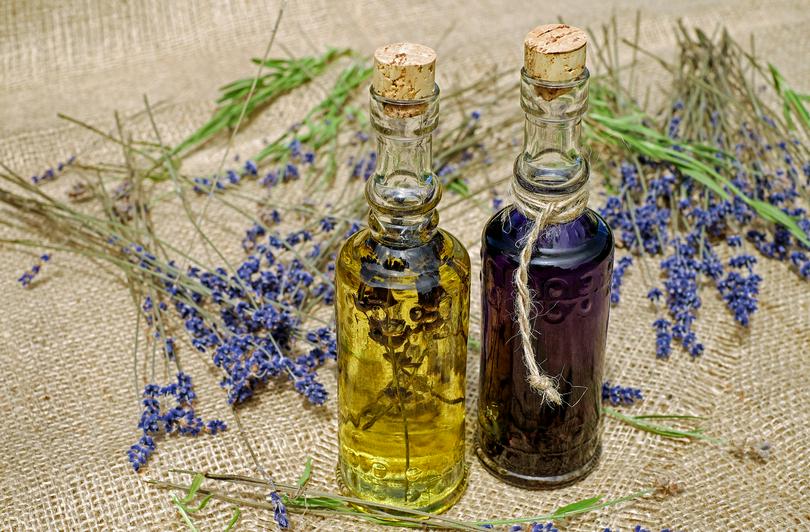With the outbreak of COVID-19, people worldwide are facing unprecedented challenges. With people in many countries anxious about the rampant epidemic, a "priest" in Africa declared that "sacred anointing oil" can bring health to believers.
According to an overseas website, 20 people were killed and 16 injured on February 1 in a stampede at a church in Tanzania. Hundreds of people were crowded together in a stadium in the town of Mosey when they scrambled to receive "blessing oil," which they thought would get rid of poverty and cure diseases. However, the result was trampling, injuries and death.
The Bible says, "...Instead, to suit their own desires, they will gather around them a great number of teachers to say what their itching ears want to hear." (2 Timothy 4: 3) Pastor Paul Walsh once said, "False teachers are raised up by God to judge people who want to satisfy their sensual desires in the name of religion...The false teacher is the judgment of God, because what they want is not God, but what he (the false teacher) desires. "
In China, practices like sales of sacred anointing oil, tongues of the Holy Spirit, spiritual dances and being slain by Holy Spirit have existed in both rural and urban churches. Someone once took Israelite anointing oil and put it on the foreheads of new believers, saying, "Be clean".
Last year, the author met two pastors in his hometown who were "knocked down" when they sought to be filled with the Holy Spirit. They spoke in dialects, danced spiritually, performed miracles of "healing," and prayed with upraised hands to deliver the Spirit's anointing to the believers.
The precious and sacred "Israelite anointing oil" was not omitted. The worship focused on dancing to the beat of drums, while neglecting the whole gospel. Consequently, many churches have split because of cults or extreme Pentecostalism.
In ancient times, oil had many uses. In Israel and Egypt, people would apply anointing oil to their skin after bathing. Hosts would pour oil on the heads of guests to welcome them. Soldiers oiled their shields to make enemy arrows slide away.
When Israel built the tabernacle in the wilderness, Moses sanctified it and all its vessels with oil (Exodus 40: 9-15). Oil was poured on the heads of the High Priest and his descendants. This oil was called "sacred anointing oil", and was strictly forbidden for personal use (Exodus 30: 32-33). The Jews also anointed corpses to show their respect for the dead (Matt. 26:12).
According to the book of Exodus, the ointment contained myrrh, cinnamon and other natural ingredients. There is no indication that the oil or the ingredients had any supernatural power.
The Bible mentions "anointing" more than 200 times. The Old Testament describes the king and prophet as the "anointed," and the Bible calls Jesus the Messiah and Christ, which means the Anointed One.
Anointing by oil is mentioned four times in the New Testament, though no explanation of its usage is given. In Mark 6:13, the disciples anoint the sick and heal them. In Luke 7:46, Mary anoints Jesus' feet as an act of worship of him. In James 5:14, the church elders use oil to heal the sick. Hebrews 1:8-9 tells us that the kings of the Old Testament had to be anointed before they could become kings. Here, "anointing you with the oil of joy" means that God himself has anointed Christ as the king. The oil that God uses is not the sacred ointment made of spices, but the anointing of the Holy Spirit which has no limit (John 3:34).
Should Christians use anointing oil today? There are not any commands in the Bible that either permit or prohibit us to use it. In the Bible, oil is often used to symbolize the Holy Spirit, as in the Parable of Ten Virgins (Matthew 25: 1-13). In the story of Good Samaritan, it is said that olive oil is used to alleviate wounds.
Anointing is to be done "in the name of the Lord," indicating that it is based on divine authority. What is the purpose of "anointing"? The New Testament mentions it once: "They drove out many demons and anointed many sick people with oil and healed them. (Mark 6:13)". Neither of these verses offers an explanation of the practice.
Scholars believe that anointing with oil may have had a practical purpose. In ancient times, oil was commonly used as a medicine. In his well-known parable, Jesus tell us that the Samaritan stopped to help the one who had been robbed and beaten: "He went to him and bandaged his wounds, pouring on oil and wine. (Luke 10:34)." Other ancient sources have confirmed the effectiveness of oil in treating diseases ranging from toothache to paralysis. Anointing could also have been intended to stimulate the patient's confidence.
It is also likely that oil had a religious purpose, such as a its use as a sacrament of the early church. Western churches have maintained this view for centuries, and have also used oil on other occasions. Later, the Roman Church gave its priests the exclusive rights to perform the ritual, and "deathbed anointing" developed later.
Many exegetes believe that the best way to understand anointing is as a symbol. The oil itself does not have a magical power. What is more important is to be a new creation, to walk with the Lord, and to wait for the Lord's return.
In the last days, many cults have arisen. Why do so many "muddleheads " follow them? It's because many people do not earnestly seek the truth. In addition, many believers today like novel doctrines, peculiar experiences, dreams, visions, etc. Although they know the gospel, they have hardened their hearts and have deliberately kept their ears from hearing the truth. Instead, they have gathered around themselves a great number of false teachers who say what their itching ears want to hear.
May the Lord keep us safe and help us be cautious. May God awaken our foolish hearts to return to the Bible, which is the truth.
- Translated by Sophia Chen












